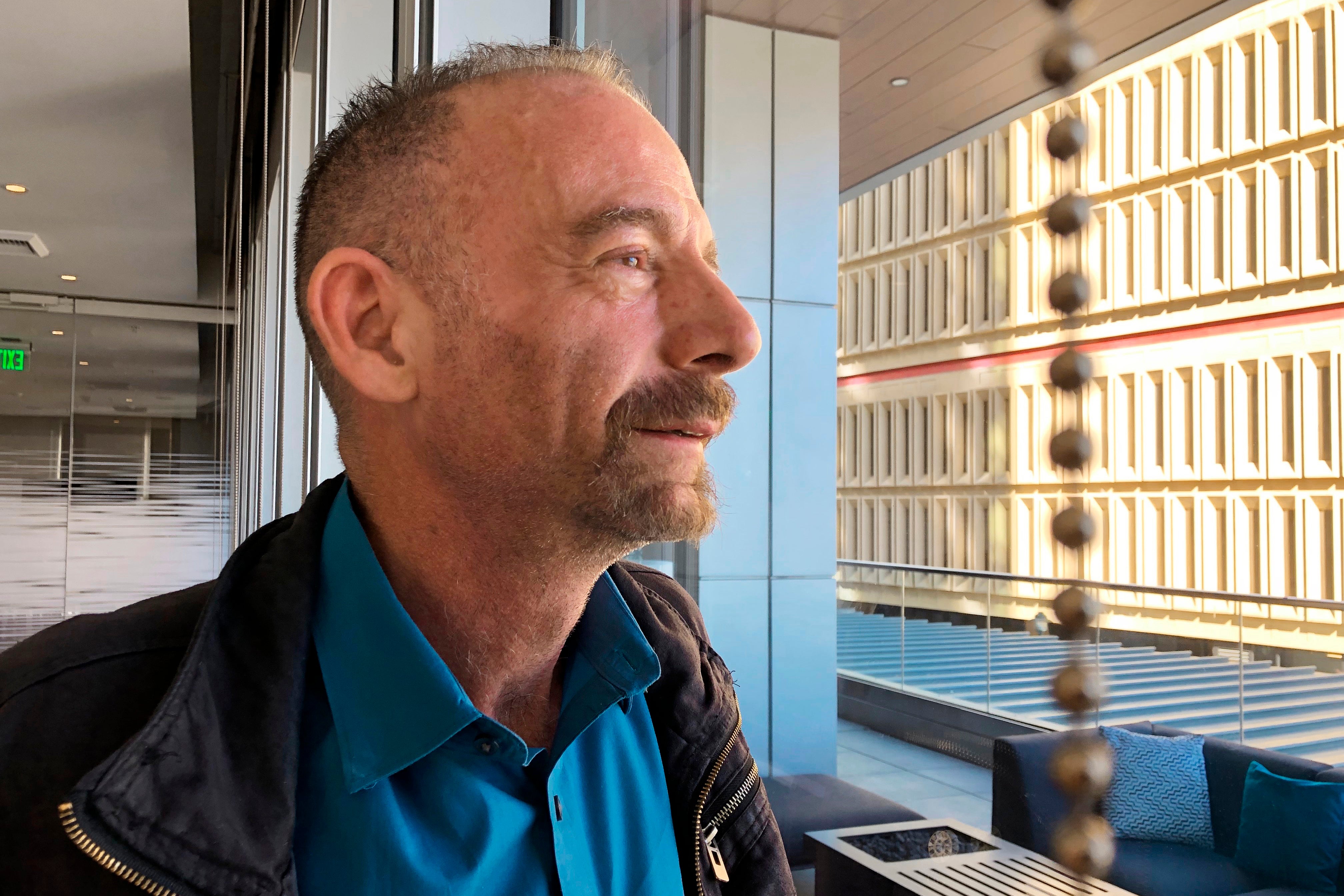Timothy Ray Brown, 1st person cured of HIV, dies of cancer
The first person known to be cured of HIV infection, Timothy Ray Brown, has died

Your support helps us to tell the story
From reproductive rights to climate change to Big Tech, The Independent is on the ground when the story is developing. Whether it's investigating the financials of Elon Musk's pro-Trump PAC or producing our latest documentary, 'The A Word', which shines a light on the American women fighting for reproductive rights, we know how important it is to parse out the facts from the messaging.
At such a critical moment in US history, we need reporters on the ground. Your donation allows us to keep sending journalists to speak to both sides of the story.
The Independent is trusted by Americans across the entire political spectrum. And unlike many other quality news outlets, we choose not to lock Americans out of our reporting and analysis with paywalls. We believe quality journalism should be available to everyone, paid for by those who can afford it.
Your support makes all the difference.Timothy Ray Brown, who made history as “the Berlin patient ” the first person known to be cured of HIV infection, has died. He was 54.
Brown died Tuesday at his home in Palm Springs, California, according to a social media post by his partner, Tim Hoeffgen. The cause was a return of the cancer that originally prompted the unusual bone marrow and stem cell transplants Brown received in 2007 and 2008, which for years seemed to have eliminated both his leukemia and HIV, the virus that causes AIDS.
“Timothy symbolized that it is possible, under special circumstances,” to rid a patient of HIV -- something that many scientists had doubted could be done, said Dr. Gero Huetter, the Berlin physician who led Brown’s historic treatment.
“It’s a very sad situation” that cancer returned and took his life, because he still seemed free of HIV, said Huetter, who is now medical director of a stem cell company in Dresden, Germany.
The International AIDS Society, which had Brown speak at an AIDS conference after his successful treatment, issued a statement mourning his death and said he and Huetter are owed “a great deal of gratitude" for promoting research on a cure.
Brown was working in Berlin as a translator when he was diagnosed with HIV and then later, leukemia. Transplants are known to be an effective treatment for the blood cancer, but Huetter wanted to try to cure the HIV infection as well by using a donor with a rare gene mutation that gives natural resistance to the AIDS virus.
Brown’s first transplant in 2007 was only partly successful: His HIV seemed to be gone but his leukemia was not. He had a second transplant from the same donor in 2008 and that one seemed to work.
But his cancer returned last year, Brown said in a recent interview with The Associated Press.
“I’m still glad that I had it,” he said of his transplant.
“It opened up doors that weren’t there before” and inspired scientists to work harder to find a cure, Brown said.
A second man, Adam Castillejo -- called “the London patient” until he revealed his identity earlier this year -- also is believed to have been cured by a transplant similar to Brown’s in 2016.
Because such donors are rare and transplants are medically risky, researchers have been testing gene therapy and other ways to try to get a similar effect. At an AIDS conference in July, researchers said they may have achieved a long-term remission in a Brazil man by using a powerful combination of drugs meant to flush dormant HIV from his body.
Mark King, a Baltimore man who writes a blog, said Brown “was just this magnet for people living with HIV, like me,” and embodied the hope for a cure.
“He has said from the beginning, ‘I don’t want to be the only one. They have to keep working on this,’” King said.
Subscribe to Independent Premium to bookmark this article
Want to bookmark your favourite articles and stories to read or reference later? Start your Independent Premium subscription today.